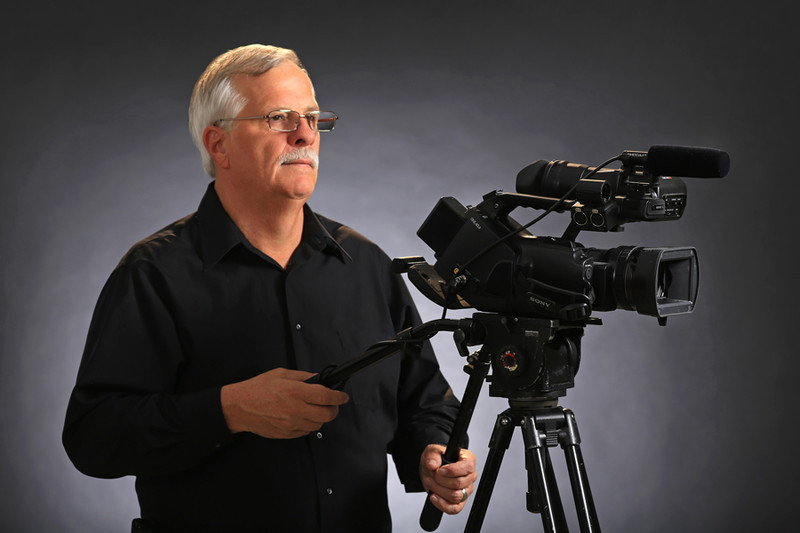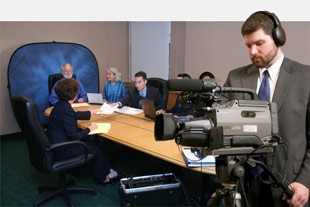The Role of Lawful Videography in Depositions and Tests
Lawful videography has arised as an essential tool in both depositions and tests, providing a complex approach to recording witness statements. As lawful specialists progressively acknowledge its worth, it motivates a much deeper exam of exactly how these visual records can influence juror assumptions and test results.
Significance of Legal Videography
Lawful videography plays an essential function in the documentation and presentation of depositions and tests. This specific field incorporates technological skills with lawful expertise to produce a trustworthy record of proceedings that can dramatically affect situation results. The appearance of legal videography boosts the understanding of witness statement, allowing jurors and courts to observe not only the talked words however also the demeanor, feelings, and body language of the witnesses.

The value of legal videography prolongs beyond the courtroom; it additionally plays an essential duty in maintaining proof for future referral, whether for allures or additional legal activity. Thus, its assimilation into the legal procedure is crucial for making sure a reasonable and precise representation of the realities, inevitably contributing to the quest of justice.

Process of Legal Videography
While recording the nuances of depositions and tests, the process of lawful videography involves a number of essential steps that make certain top notch, accurate recordings. A professional lawful videographer prepares by examining the instance materials and comprehending the specific demands of the deposition or trial. This prep work consists of acquainting themselves with the participants and the context, which aids in catching essential details.
On the day of the recording, the videographer establishes the needed tools, which generally consists of high-def electronic cameras, microphones, and correct illumination. Making sure ideal angles and audio top quality is essential, as it directly affects the efficiency of the recording. The videographer interacts with lawyers and individuals to develop methods, ensuring that everyone understands the recording process.
During the deposition or trial, the videographer carefully tapes the procedures, paying close focus to both verbal and non-verbal signs. legal videography. This consists of recording the demeanor and reactions of witnesses and attorneys. After the session concludes, the videographer may edit the footage for clarity and conformity with lawful criteria, generating an end product that precisely shows the procedures for future reference and use in legal contexts
Benefits in Depositions
The incorporation of videography in depositions offers numerous advantages that boost the general procedure of gathering evidence. One primary benefit is the capability to capture witness testimonies with aesthetic and acoustic integrity, offering a more accurate representation of the witness's behavior, tone, and body language. This multidimensional technique enables attorneys and courts to evaluate trustworthiness better than typical see page written transcripts alone.
Additionally, videographed depositions act as an effective tool for maintaining statement. Needs to a witness ended up being inaccessible for trial, their videotaped deposition can be played in court, making sure that their proof remains obtainable and relevant. This element significantly minimizes the risk of losing critical information that can impact situation end results.
Furthermore, making use of lawful videography promotes better preparation for lawyers. Reviewing video footage enables lawful groups to analyze and fine-tune their methods, recognizing strengths and weaknesses in their situations. This primary benefit can lead to more compelling presentations in court.
Last but not least, videography boosts the overall professionalism and trust of the deposition procedure, instilling confidence in clients concerning the thoroughness of their legal representation. By leveraging innovation, attorneys can dramatically improve the effectiveness of depositions.
Effect On Trials
In numerous trials, the combination of videography can substantially affect the discussion of proof and the court's assumption. Lawful videography records witness testaments and essential evidence in a dynamic style, enabling jurors to involve with the product on several levels. This visual component enhances the storytelling aspect of a trial, providing context and emotional resonance that traditional text-based proof might do not have.
In addition, video directory clip recordings can offer as click over here now effective devices for impeachment throughout interrogation. When inconsistencies emerge in between a witness's prior statements and their courtroom testament, video clip evidence supplies an objective reference that can sway jurors' point of views. This immediacy and quality can strengthen the reputation of an event's story while at the same time undermining opposing arguments.
In addition, the usage of videography can aid enhance complicated info, making it more obtainable to jurors that may struggle to realize elaborate details offered entirely through spoken testimony. By combining visuals with acoustic information, lawful videography can improve retention and understanding, inevitably affecting the jury's decision-making procedure. The effect of videography in trials prolongs past simple aesthetics; it plays a vital role in forming the legal landscape and end results.
Future Trends in Legal Videography
As we look toward the future of lawful videography, several emerging patterns assure to reshape its duty within the courtroom. One substantial pattern is the assimilation of expert system (AI) in video clip evaluation and editing and enhancing - legal videography. AI can improve the procedure of identifying essential moments in videotaped depositions, enabling lawyers to promptly access relevant web content, consequently enhancing efficiency in situation prep work
Furthermore, the surge of virtual reality (VR) and boosted reality (AR) innovations is anticipated to change how jurors experience evidence. By submersing jurors in a substitute setting, these innovations can give a more profound understanding of complicated circumstances, bring about even more enlightened deliberations.

In addition, the increasing demand for remote depositions, sped up by the COVID-19 pandemic, will likely proceed. Lawful videographers will certainly need to adapt to brand-new software program and platforms to make sure top notch recordings in digital settings.
Lastly, the growing focus on information protection will certainly require stricter procedures for storing and sharing video proof. As the legal landscape evolves, lawful videographers should remain abreast of these trends to maintain their significance and efficiency in the judicial process.

Conclusion
In recap, legal videography offers an important feature in the judicial process, boosting the stability of depositions and tests. By capturing the subtleties of witness testimonies, this medium not just preserves crucial evidence however also aids in offering information successfully to jurors. The importance of visual documents in assessing reputation and helping with interrogation can not be overemphasized. As technology remains to advance, legal videography is poised to more change its role within the legal landscape.